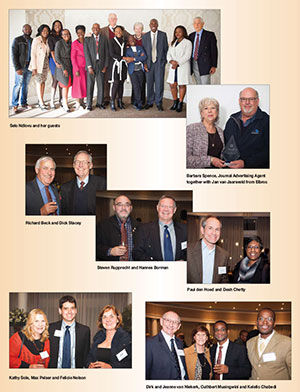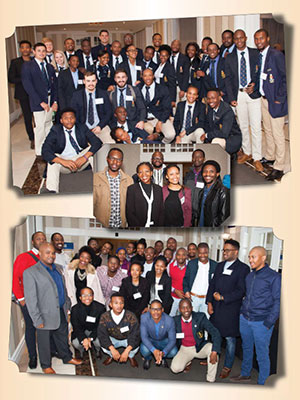Services on Demand
Article
Indicators
Related links
-
 Cited by Google
Cited by Google -
 Similars in Google
Similars in Google
Share
Journal of the Southern African Institute of Mining and Metallurgy
On-line version ISSN 2411-9717
Print version ISSN 2225-6253
J. S. Afr. Inst. Min. Metall. vol.117 n.9 Johannesburg Sep. 2017
http://dx.doi.org/10.17159/2411-9717/2017/v117n9a2
PROCEEDINGS
Proceedings, 120th Annual General Meeting, 2017
The 120th Annual General Meeting of the Southern African Institute of Mining and Metallurgy was held at the Country Club, Napier Road, Auckland Park, Johannesburg on Thursday 17 August 2017.
Welcome
The President, Cuthbert Musingwini, extended a special welcome to the guests and representatives of our sister institutes and other associations, and also to recipients of awards, senior members of industry, Honorary Life Fellows, past-Presidents, our members, and other guests, among them the following:
Association of Mine Managers of South Africa
Philip Coetzer, President
Chamber of Mines of South Africa
Roger Baxter, Chief Executive
Geological Society of South Africa
Edward Swindell, President
Geostatistical Association of South Africa
Christina Dohm, Chairperson
South African Coal Processing Society
Jayson Jacobs, President
South African Council on Automation and Computation
Kobus Oosthuizen, President
South African National Institute of Rock Engineering
Jannie Maritz, President
Past-Presidents attending
Richard Beck
Rodney Jones
Marek Dworzanowski
Jim Porter
Andrie Garbers-Craig
Dick Stacey
Henry James
Oskar Steffen
Minutes
The minutes of the previous Annual General Meeting, which were published in the September 2016 issue of the Journal and sent to all members, were confirmed.
Obituaries
The President announced the deaths, during the year, of the following members:
Honorary Life Fellows
John Saise Freer
Denis Grantham Maxwell, SAIMM past-President, 1961-1962
Life Fellows
Charles Timothy Shaw
Fellows
William Alan Naismith
Retired Fellows
Marcus Dijkstra, Douglas Frank Foster, Johannes Paulus Hoffman (Past President 1992-1993), Alan Francis Newall
Members
Gert Machiel Jooste, Charles James William Oertel, Albert Francois Simon Schoukens, Sidney Sondashe
Retired Members
Carl Peter Jonathan Biccard Jeppe, Lancelot Charles Stilwell
In memory of the deceased and in sympathy with the bereaved, all rose and observed a moment of silence.
Honorary Life Fellowship
Zelmia Botha: Honorary Life Fellowship is awarded by the Council to Corporate Members of the Institute who have rendered outstanding service to the Institute over many years. It is my pleasure to announce that the Council has decided to award Honorary Life Fellowship to:
► David Tudor, for his outstanding service as the Journal Editor and support of the SAIMM over many years.
Brigadier Stokes Memorial Award
Cuthbert Musingwini: The Brigadier Stokes Memorial Award was instituted in 1980 to commemorate the outstanding contribution to the South African mining industry made by Brigadier R.S.G. Stokes, an Honorary Life Fellow and past-President of this Institute. This is the premier award of the Southern African Institute of Mining and Metallurgy and is made to an individual for the very highest achievement in the South African mining and metallurgical industry. It gives me great pleasure to announce that the award for 2017 is to be made to Roger Alan Baxter.
Cuthbert Musingwini called upon Alastair Mafarlane, to read the citation:
In 1980 the South African Institute of Mining and Metallurgy instituted a prestigious award to commemorate Brigadier Stokes for his outstanding and unique contribution to the South African mining Industry over many years. This award, which consists of a platinum medal, is made to an individual for the very highest achievement in the South African mining and metallurgical industry.
It is with great pleasure that I announce that this year's recipient, unanimously agreed by the Office Bearers, is Roger Alan Baxter.
Roger was born from an ancestry of German and Irish settlers, growing up in the Eastern Cape and Mafikeng. He spent his first six years in South Africa, before his parents relocated to Zimbabwe, where he received his junior and senior schooling, the latter at Peterhouse School. After 12 years in Zimbabwe, he returned to South Africa to study at the University of KwaZulu-Natal, then situated in Pietermaritzburg. Having first shown interest in studying medicine, he transferred to a BComm with postgraduate honours, specializing in advanced corporate finance, while working with Deloitte. While at university he was active in many sports, and he tells me that after playing rugby alongside the likes of Gary Teichmann and Tony Watson, after the fourth concussion he thought it wiser to preserve and use his brain.
After graduation he spent a year working with his father, and then he first joined the Chamber of Mines as a Junior Economist. At that time, the Chamber employed 650 people directly, with 5000 in total in associated business such as TEBA, Rand Refineries, and so on. Very different to the current 65 employees.
This, in 1992, was at the time of the unbanning of the ANC, and an exciting time in South Africa's history, and so he became instantly involved in the first minerals policy discussions. This involved meeting with people such as Mike Solomon, Cyril Ramaphosa and others. These discussions formed the basis of the Minerals Policy, upon which the Minerals and Petroleum Development Act was to be based and informed.
Roger was appointed as Economist, and then Senior Economist in 1996, working as the Head of the Economics Unit of the Chamber.
In 1998, he decided to make a move to the market, becoming an analyst with Credit Lyonnaise. This did not last long before one of his mentors, Bobby Godsell, President of the Chamber at the time, headhunted him to come back to the Chamber as Chief Economist. Bobby, one of our previous recipients of the Brigadier Stokes award, was a visionary leader in South African mining, and recognized the qualities that Roger exhibited in terms of his level of expertise, his frankness in negotiations, and his ability to translate discussion and ideas into policy discussions at a strategic level.
At that time, some 98 round-table discussions were convened on aspects of energy policy, skills development policy, the National Development Plan, and many others, through the National Development Forum, Nedlac, and Business South Africa.
In the early 2000s, Roger continued working with Bobby Godsell as the negotiator in policy discussions that paved the way for the development of the first Mining Charter and the Minerals and Petroleum Development Act. He recalls the time when Minister Phumzile Mlambo-Ngcuka (who, he remembers, resolved many crises over dinner at her home) had to deal with the first blow-out over the Charter. The market capitalization of the mining board on the JSE at the time was R750 billion, which was blown away by R52 billion in two days. Roger, accompanying the Minister on a roadshow to London to pour oil on troubled waters, was faced by 65 angry and doubtful fund managers in Whitehall, and was handed the proverbial hospital rugby pass by the Minister, who announced 'Here is the Chamber, let's see what they say'.
Roger responded by asking the collective audience 'if we do nothing, and do not invest in black South Africans, do not share ownership and do not involve them in meaningful procurement, will we continue to have an industry?' That was a landmark opportunity to open creative discussions leading forward.
During these years, Business South Africa and the Black Business Council amalgamated, and Roger was intimately involved in this as well as GEAR, the RDP programme, and the Growth and Employment strategy, working alongside Trevor Manuel.
By 2010, he had served 10 years as Chief Economist, and became the Senior Executive in charge of Economics and Policy at the Chamber. These were interesting times, with Roger interacting with some of the more colourful Executives of the Chamber Council, such as Chamber Presidents Bobby Godsell, Con Fauconnier, Alan Munro, Lazarus Zim, and Tom Main.
These interactions all helped to shape and inform transformation debates with with a succession of Ministers, first Pik Botha, then Penuel Maduna, Phumzile Mlambo-Ngcuka, Minister Ngoako Rhamatlhodi, and now, Minister Mosebenzi Zwane.
These were years that Roger describes as years with lots of goodwill. He laments that currently, despite many examples of great collaboration, such goodwill amongst certain stakeholders is lacking, and is desperately needed.
In 2011, he worked as the Chamber Senior Executive for strategy, an area that is one of great importance for him. Then, Roger decided that he should gain international mining investment and strategy experience, and joined Rio Tinto as Vice President: Industry Analysis, based in Montreal. This was a disruptive move for his family, but they went to Canada, which they enjoyed while it lasted. Not for long though, because the then President of the Chamber, Mark Cutifani, said to Roger 'we need you back'. Less than a year after leaving he was back - and walked into a minefield (excuse the pun), which was Marikana and the five-month platinum industry strike. At this time he was appointed as the Chief Operating Officer of the Chamber, in charge of strategy development.
This was an area of great interest for Roger, who wanted to make the Chamber relevant, with a strategic plan that was able to deliver value for its members.
On 1 May 2015, he took over as Chamber CEO, the position which he still holds today. Upon this announcement, Miningweb said (and I quote) 'Baxter has participated in the team negotiating a revised mineral policy with the democratic government, which included matters of beneficiation, black economic empowerment, the economics of the new Minerals Act, minerals taxation and the proposed new Minerals Royalty Bill. He was the Chamber negotiator on the Mining Charter, the Charter's Scorecard and for the Mineral Royalty Bill discussions.
'Baxter has played a pivotal role in the Mining Industry Growth, Development and Employment Task Team (MIGDETT) which was established in 2008 to find ways of counteracting the effects of the global economic crisis on the industry and position mining for the next commodity upswing.'(unquote)
In this position, he is determined to transform the Chamber from a 19th century organization into a 21st century one, in the spirit of modernization. This involves strategic focus on issues of modernization, transformation, external communications, effective stakeholder engagement, and greater reconciliation with society, all focusing on member's issues and taking the industry forward as a collective.
This has allowed good and constructive engagements and debates with a wider range of stakeholders than ever before.
Roger believes passionately that the industry has to stand its ground on ethical and good governance, and that it has a bright and positive future with the right ethical leadership in place, leadership founded by the likes of Mike Teke and Steve Phiri.
With a highly competent and focused staff of 65 professionals, he sees the Chamber as a force to reckon with, and he would like to leave a legacy of firm and ethical leadership, effective growth strategies, good governance, and clear and appropriate policy determination.
In addition to what I have described, Roger has also served in the following positions.
► Chairman: Standing Committee on Economic Policy, Business Unity South Africa
► From 2006, Chairman: Task Team on ASGI-SA, Business Unity South Africa
► From 2005, Chairman: Negotiating New Industrial Strategy in Nedlac, Business SA Task Team
► From 2002, Chairman: Finance Committee, Economic Society of South Africa
► From 1989, Chairman: Integrated MFR Strategy
► Director: National Productivity Institute
► Member: Adjudication Panel, State President's Award for Exports.
So, what of the person? Roger describes himself as a humble person who lets his actions and capability do the talking. He believes firmly that respect is earned and not bought, and this is most evident in the Chamber and the Chamber Council, as well as with negotiating partners. He has a passion for people and excellence, and has an unwavering love of South Africa and the people of South Africa. This comes through palpably when one visits the Chamber, where a breath of fresh air and enthusiasm is tangible.
In my discussions with him, despite the current political and economic turmoil within industry, he remains unbelievably positive about the future of our mining industry.
In my own associations with Wits University, whenever called upon to give a guest lecture to postgraduate students, Roger has always been willing, frank, and open in his approach to share his insights with the students, as I am sure Professors Richard Minnitt and Fred Cawood would agree.
Roger is a dedicated family man, being married with a 19 year old son following in dad's footsteps, studying for a Bachelor of Business Science degree, and the sparkle in his eye, his 12 year old daughter.
Despite all the very senior names I have mentioned before in this citation, Roger's most memorable engagements and memories, of course, will always be of his meetings with Nelson Mandela and Thabo Mbeki. He believes he is a product of these experiences, which have enlightened and enriched him.
In many, if not most, of the Brigadier Stokes awards, we have awarded people who are at or nearing the end of their careers, for the contributions they have made to industry. In Roger's case, he is very much in the thick of things, and surely the best is yet to come.
Alastair Macfarlane called upon Roger Alan Baxter to come forward to collect his award from Cuthbert Musingwini. He then gave a short acceptance speech as published below:
President Musingwini, Incoming President Ndlovu, and distinguished guests.
I am both humbled and grateful to join you here this afternoon, and am honoured to accept with great pleasure the Brigadier Stokes Memorial Award - which is indeed an accolade of the highest order.
The work undertaken by the Southern African Institute of Mining and Metallurgy in disseminating knowledge about technological developments in the mining, metallurgical, and related fields is invaluable for the South African mining industry. The Chamber and SAIMM share similar long histories, with a key focus on reinventing themselves to be relevant pacesetters. The Chamber was first started in 1887, but actually formalized in 1889, while the SAIMM was started in 1894.
Technology and innovation are critical catalysts for the sustainability and growth of the South African mining industry. They also help the industry to work more safely, more efficiently, and more productively. It was a technological development - the invention of the cyanide recovery process - that literally saved South Africa's gold mines in the early days by making possible the recovery of gold from the ore that was not suitable for the gravity separation method. Similarly, new technologies allowed the mining and extraction of platinum and chrome concentrates from UG2 ores, where the traditional extraction methods for the Merensky Reef were inefficient.
It is technological innovation again that is needed to ensure that our mines, particularly our ageing gold and platinum mines, can continue producing into the future. If there is no shift in mining methodology the industry will not be able to exploit South Africa's deep-level and complex orebodies. The inevitable result will be premature mine closures and job losses, which research suggests could be as high as 200 000 by 2025. Innovation and modernization are an imperative, not a choice.
The development of high-end skills is also a critical factor for the advancement and sustainability of the mining sector. This is particularly imperative in view of the technological developments in the industry and the need to ensure that the industry's leaders and future leaders keep abreast of the technologies that will take our mines into the future. I have been really impressed by the work of our major universities, such as the Mining Engineering School at Wits (which is celebrating 120 years of age) with the focus on Mining 4.0. These pathfinding institutions are preparing our next-generation mine managers now. It is an exciting time.
So too, the Chamber itself has been focusing on internal modernization and the rejuvenation of its brand so that the organization will be more strategically focused and better positioned to represent its members. We have honed our focus from a strategic planning perspective, restructured internally, and are much more agile and capable in terms of meeting our strategic goals. The Chamber has an acute focus on resolving legacies, but mostly on repositioning the sector for meaningful competitiveness, investment, growth, and transformation. We have also done a huge amount of work on re-creating the focus of innovation in mining, as we believe this is the key to unlocking the sector's true economic and transformational potential.
The Chamber is also positioning itself as an agent of change. The transformation imperative is as much a priority for the industry as are technological developments.
This might seem to be a strange comment from an organization that has rejected the unilateral imposition of the Department of Mineral Resources' Mining Charter on the industry. I must stress that the Chamber is 100% committed to transformation and would have been happy to negotiate with government and other stakeholders on new transformation targets for the period ahead, had it been given the opportunity to do so, which it was not - a significant deviation from the inclusive processes followed in respect of the two previous iterations of the Charter. We were very much the pathfinders in the development of Mining Charter 1 in 2002, and the Chamber and its members have ensured that transformation has not only been of scale, but that it is irreversible.
We are also committed to being part of a process that is aimed at simultaneously transforming, growing, and sustaining the industry. However, we cannot accept, and indeed it would be irresponsible of the Chamber and the industry to do so, unworkable targets and unnecessary institutions that will cripple the industry, large parts of which are loss-making and are fighting for survival. We want to follow a progressive and transformative agenda that will enable mining to regain its place as a key economic sector in our economy.
While the industry is going through a tremendously challenging period with policy uncertainty - a draconian Charter, the incomplete MPRDA Amendment Bill, the illegal application of some Section 54 safety stoppages, corruption and state capture, falling productivity and rising costs - this is a resolute industry. With astute ethical, moral, and driven leadership we can help this industry restore its shine and realize its potential.
Commodity cycles, long lead times, and huge capital commitments require that we have a stable and predictable policy and regulatory environment. This is why the Chamber takes such strong positions on policy and regulatory issues, ethical leadership, and good governance. Increasingly, business simply has to stand up and be counted and play a leading role in getting our country back onto an honest and transparent path so that we can move ahead with integrity, a quality that is significantly absent from certain sections of our society at the moment.
In the past 18 months I have been honoured to work with a number of South African business leaders, civil society activists, and union leaders that want to restore the South African dream. All of us need to stand up and be counted (even in the courts).
Brigadier R.S.G Stokes was a man who was honourable. He was also remarkable, not only for his contributions to mining, which were considerable, but also for his feats on the battlefield and as an author. I am amazed to think of his incredible achievements of having fought in, and survived, the Anglo-Boer war and two world wars.
Brigadier Stokes' 'A.B.C.' of behaviour consisted in being Articulate, Brief, and Courteous. It is a code well worth emulating, and I am privileged to receive this prestigious award that bears his name and is in his memory.
My sincere thanks to you, President Musingwini, and to the members of the SAIMM, and congratulations to you on your 123rd anniversary.
Presentation of awards, medals, and certificates
Zelmia Botha: announced the following awards, medals, and certificates, which were presented by Cuthbert Musingwini.
50-year Membership Awards
(with effect from 1 July 1966 to 30 June 1967)
► David Anthony Arnold
► Constantinus Johannes Fauconnier
► David Robert Fleming
► Alfred Eric Walter Fletcher
► Peter George Paul Mrkusic
► Noel Francis Peverett
► John Charles Simms
► Peter Johannes Charles Smith
► Oskar Kurt Helmut Steffen
► Dirk Jacobus van Niekerk.
The Danie Krige Memorial Award
The Danie Krige Memorial Award was instituted in 2013 to honour the memory of Professor Danie Krige, who was one of South Africa's most influential mining engineers and a geostatistician of international repute.
The Danie Krige Memorial Award is considered for the best geostatistical paper published in the SAIMM Journal between January and December 2016.
There was no award this year.
Gold and Silver Medals
Papers published in the Journal from March 2016 to February 2017 by members of the Institute were considered for medals.
Gold Medals
Gold medals are awarded for papers that are of a world-class standard, and judged to be publications that will become key references in their mining or metallurgy field in the future.
Gold Medals were awarded to:
D. Cumming-Potvin, J. Wesseloo, S.W. Jacobsz, and E. Kearsley for their paper published in the August 2016 issue of the Journal entitled: 'Fracture banding in caving mines'.
As non-members, D. Cumming-Potvin, S.W. Jacobsz, and E. Kearsley received certificates of merit.
L.M. van Niekerk, A. Olivier, J. Armstrong, and N.A. Sikwa for their paper published in the August 2016 issue of the Journal entitled: 'Pioneering large diamond recovery at Karowe diamond mine'
As non-members, A. Olivier, J. Armstrong, and N.A. Sikwa, received certificates of merit.
Silver Medals
Silver medals are awarded for papers that make a major contribution to the professions of mining and metallurgy and to the prestige of the Institute.
Silver Medals were awarded to:
D. Vogt for his paper published in the November 2016 issue of the Journal entitled: 'A review of rock cutting for underground mining: past, present, and future'.
J.N. van der Merwe for his paper published in the November 2016 issue of the Journal entitled: 'Review of coal pillar lifespan prediction for the Witbank and Highveld coal seams'.
R.C.A. Minnitt, for his paper published in the February 2017 issue of the Journal entitled: 'A version of Gy's equation for gold-bearing ores'.
L.R. Nelson and R.J. Hundermark, for their paper published in the May 2016 issue of the Journal entitled: 'The tap-hole - key to furnace performance'.
C. Ngulube, C. Chongo, and F.X. Paquot for their paper published in the June 2016 issue of the Journal entitled: 'Review, evolution, and optimization of the treatment of Kansanshi mixed copper ore'.
As non-members, C. Chongo and F.X. Paquot received certificates of merit.
Presentation of Student Prizes
Zelmia Botha announced the student winners of the SAIMM Prestige Prize and Cuthbert Musingwini presented the awards to the students adjudged by their departments to be the best final-year students in 2016.
University of the Witwatersrand
Mining Engineering S.F. Maluleke
Metallurgical Engineering D.J. Prozesky
University of Pretoria
Mining Engineering R.E. Dinkelmann
Metallurgical Engineering M.C.J. van der Merwe
University ofJohannesburg
Mining Engineering T.A. Sethu
Extractive Metallurgy R.M. Moepeng
The following SAIMM student prizes were presented at the Western Cape Branch AGM on 8 August 2017.
University of Cape Town
Best final-year student
Mineral Processing A. de Goede
University of Stellenbosch
Best final-year student
Mineral Processing M. Theart
Cape Peninsula University of Technology
Best final-year student
Mineral Processing T. Mahlasane
The Western Cape Branch also awards two Outotec postgraduate scholarships for students conducting research in the area of sustainable mineral processing, but there was no award this year.
SAIMM 5 Star Incentive Programme
The SAIMM 5 Star Incentive Programme was introduced in 2015 to thank members who contribute to the growing membership of the SAIMM and to provide additional benefits to Fellows and Members of the SAIMM. The following will receive free attendance at the Annual Banquet in 2018.
The Top 5 proposers were:
Khumo Nnyenyiwa
John Selby
John Luckmann
Joalet Steenkamp
Joint fifth place was:
Mpho Tlala
Rupert Sililo
Collins Collins.
The Top 5 referees of papers published in the Journal were:
Lesley Cornish
Steven Rupprecht
Gordon Smith
Joint fourth place was:
Farzaan Abassy
Johan de Korte
Roger Dixon
Essie Esterhuizen.
The author who submitted and published the most number of papers in the Journal were:
Dick Minnitt.
Top advertiser in the Journal
The award for the most supportive advertiser in the Journal was made to Elbroc. Jan van Jaarsveld received the award on their behalf.
Annual Report
Cuthbert Musingwini presented the Annual Report with highlights of his year as President.
Accounts
The Honorary Treasurer, Jim Porter, presented the financial statements, which are reproduced in the Annual Report in this edition of the Journal.
Office bearers and Members of Council for 2017/2018
Cuthbert Musingwini announced the office bearers for the ensuing year, elected by the retiring Council in accordance with Clauses 3.5, 5.1, and 5.2 of the Constitution:
President Selo Ndlovu
President-elect Alastair Macfarlane
Senior vice-President Mzila Mthenjane
Junior vice-President Zelmia Botha
Immediate past-President Cuthbert Musingwini
Honorary Treasurer Jim Porter
In terms of the election of ordinary members of Council (Clause 3.2.7 of the Constitution and By-law B2.1), there were fourteen vacancies and the following members are now declared elected (in alphabetical order):
Vaughn Duke Godknows Njowa
Isabel Geldenhuys Steven Rupprecht
Matthew Handley Andrew Smith
William Joughin Michael Solomon
Elias Matinde David Tudor
Molefi Motuku Dirk van Niekerk
Donovan Munro Andrew van Zyl
In terms of By-law F1.7 of the Constitution, the chairpersons of the branches are as follows: Botswana Len Dimbungu
DRC Susa Maleba
Johannesburg John Luckmann
Namibia Nikowa Namate
Northern Cape Jaco Mans
Pretoria Roelf Mostert
Western Cape Richard Beck
Zambia Darius Muma
Zimbabwe Clara Sedomba
Zululand Christo Mienie
These chairpersons will be ex-offcio members of Council.
During the last year, your Council approved the establishment of a Young Professionals Council (YPC) to serve the needs of our members who are 35 years and younger to make the SAIMM more relevant and to ensure that we are in touch with the changing needs of our younger members.
In terms of By-law I, Clause 4.4.6 the YPC must consist of a minimum of 13 and a maximum of 18 members who are 35 years of age and younger. We received the required number of nominations and did not have to conduct a formal voting process.
The office bearers of the YPC are:
Chairperson Sihesenkosi Nhleko
Vice Chairperson Katlego Letsoalo
Treasurer Gangatha Dabula
Secretary Nkhume Tshiongo-Makgwe
Immediate Past Chairperson Tshepo Mmola
The Chairman and Vice Chairman will represent the YPC on the SAIMM Council.
The following past-Presidents have signified their willingness to serve on Council for the ensuing year:
Nic Barcza Rod Pickering
Richard Beck Rams Ramokgopa
Roger Dixon Mike Rogers
Marek Dworzanowski Don Ross-Watt
Henry James Gordon Smith
Rodney Jones Willem van Niekerk
Gys Landman Pat Willis
Cuthbert Musingwini thanked those past-Presidents who indicated that they cannot serve on Council for the next year for all their time, effort, and dedication in the past.
He also thanked past-Presidents for their continued support. He congratulated all those elected, and thanked those who agreed to serve another term of office.
Election of auditors and honorary legal advisers for 2017/2018
Cuthbert Musingwini proposed, and it was agreed, that Genesis be appointed as Auditor for the coming year and that Scop Incorporated be appointed as Honorary Legal Advisers.
Induction of President
Cuthbert Musingwini introduced the new President, Sehliselo Ndlovu, and then called upon Zelmia Botha to read her curriculum vitae.
Presidential Address
Sehliselo Ndlovu presented her Presidential Address entitled: Industry-academic collaborations: an opportunity for the minerals industry during the economic downturn, which is reproduced elsewhere in this edition of the Journal.
Vote of thanks
AlastairMacfarlane, gave the vote of thanks.
Closure
The meeting closed at 19:00.
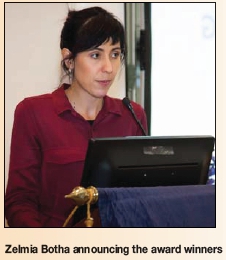
Honorary Life Fellowship Award
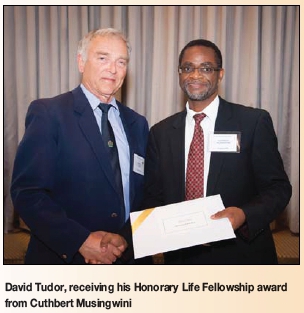
Brigadier Stokes Award
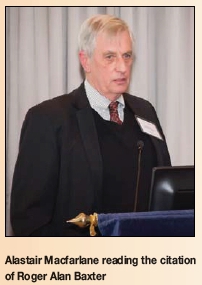
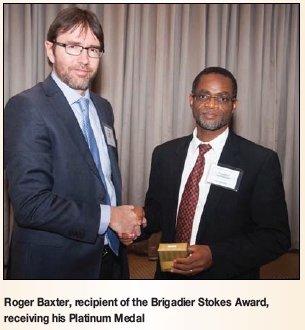
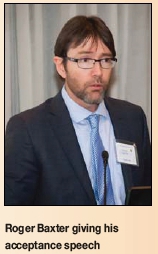
50-year Membership Awards
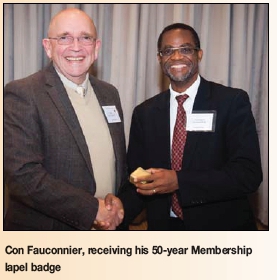
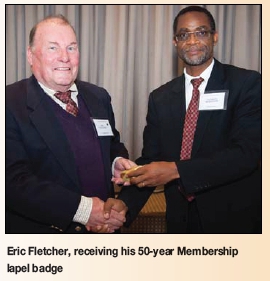
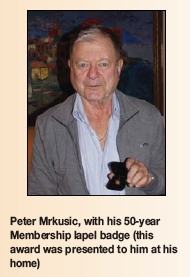
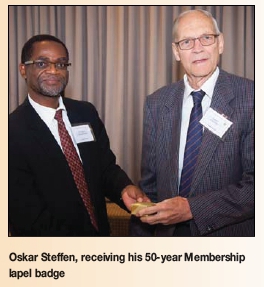
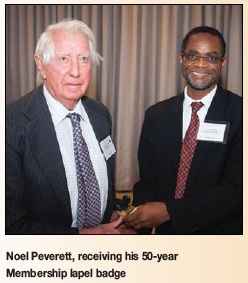
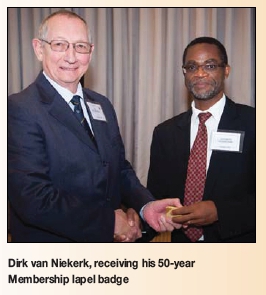
Gold Medal Award winners
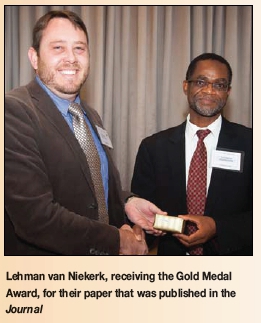
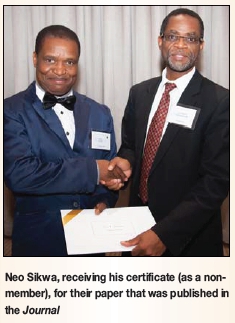
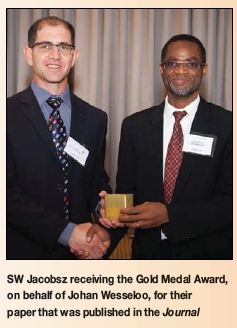
Silver Medal Award winners
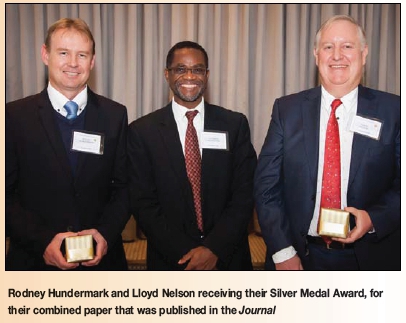
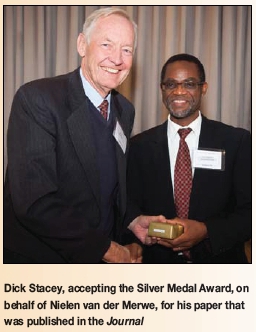
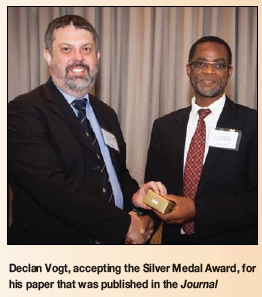
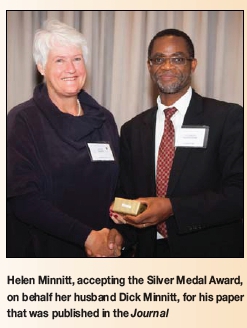
Student Prizes
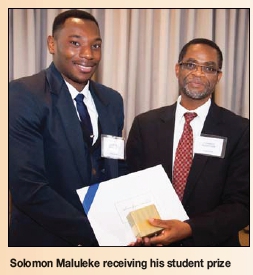
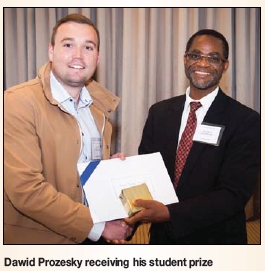
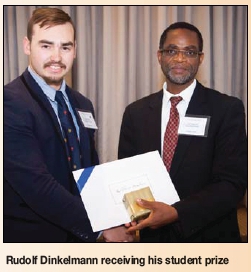
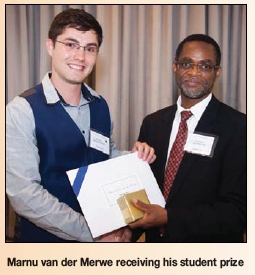
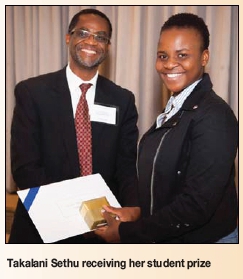
YPC Chairpersons Award
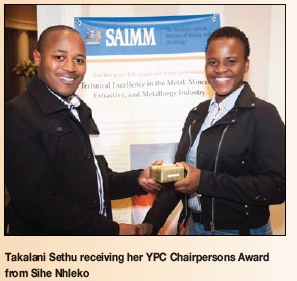
Most Supportive Advertiser in the SAIMM Journal
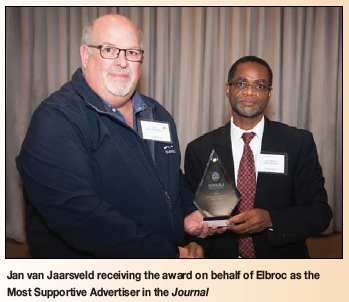
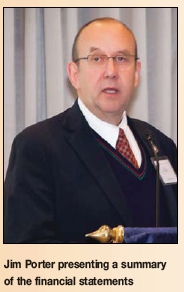
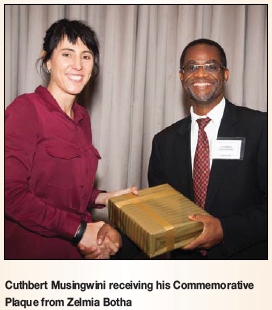
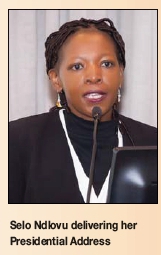
Office Bearers for 2017/2018
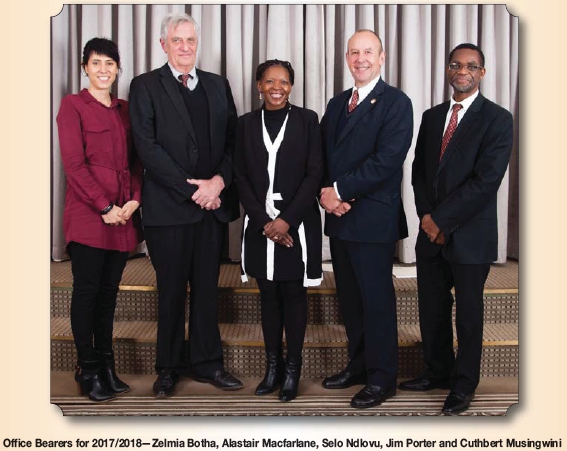
Council members and Past Presidents of the SAIMM
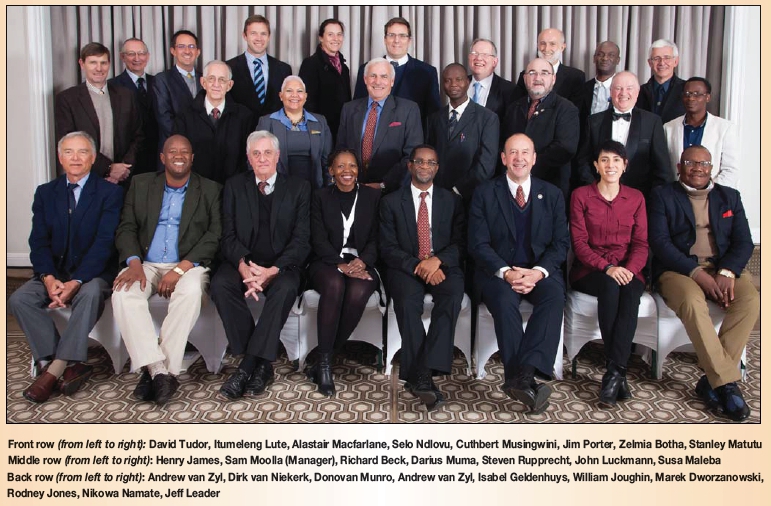
Branch Chairpersons of the SAIMM
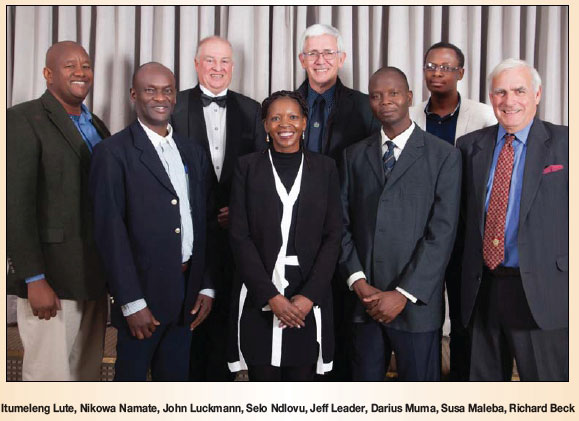
Past Presidents of the SAIMM
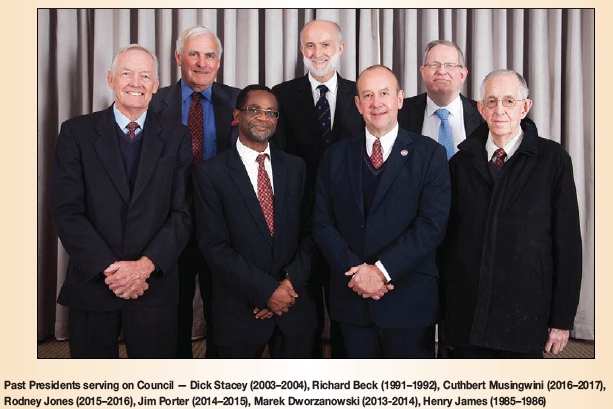
Members and their guests at the cocktail party
Students













